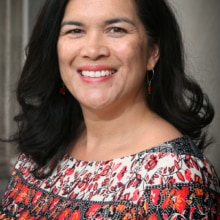A critical teacher shortage is now among the most pressing needs in North Carolina. UNC-Chapel Hill and NC State are working together to help address this problem.
Our state has simultaneously experienced growing K-12 enrollments while also seeing declining enrollments in teacher preparation programs. For more than a decade, North Carolina has been a teacher shortage state, routinely relying on both in-state and out-of-state prepared teachers.
As traditional teacher preparation enrollments drop nationwide, local school districts are increasingly hiring lateral entry teachers who meet content requirements but lack teacher preparation.
According to a recent N.C. Department of Public Instruction report, these lateral entry teachers are less effective teachers and leave the profession at a rate 79 percent greater than traditionally prepared teachers. We contend that this lack of effectiveness and higher attrition rates stem from, in many instances, inconsistency and incoherency with alternative preparation pathways.
Currently, lateral entry teachers are required to complete 18 hours of coursework over a three-year period. Many of these individuals visit a Regional Alternative Licensure Center, where they are given a “plan of work.”
These plans of work vary by licensure area and specifically dictate which courses an individual can take to fulfill licensure requirements. Individuals can then “package together” a series of courses from various institutions to meet the requirements.
We believe a different model is needed.
The research missions at UNC and NC State challenge us to meet the needs of children and schools throughout North Carolina. For us, the critical question arose – if we want to make a positive impact on today’s classrooms, how can we engage our faculty expertise and research-based teacher education programs to meet the needs of lateral entry teachers on the front lines?
We are developing a high quality, research-based teacher preparation program specifically designed for the needs of lateral entry teachers. The program will be online, asynchronous, and competency-based with mentors guiding and supporting lateral entry teachers from program entry through completion.
Because the program will be online, it will be available to teachers who otherwise would not find it convenient to travel to Chapel Hill or Raleigh. The program will incorporate well-established best practices that have proven to be effective in online teaching.
The program will include rigorous performance assessments and be evaluated by the same outcomes as our traditional program offerings. This program will provide a comprehensive, high quality, and accelerated option for lateral entry teachers.
Both NC State and UNC are recognized as among the most effective teacher preparation programs in the state, and our collaborative endeavor has the potential to change the landscape for alternative teacher preparation throughout North Carolina and the nation. The program would help meet the most pressing need for highly qualified and highly effective teachers in every North Carolina classroom today, regardless of the pathway to licensure.
Let us be clear: this program will not solve the teacher shortage in North Carolina. This is a complex issue requiring multiple solutions.
What we are offering is a high-quality pathway for second-career professionals and others with content expertise who enter classrooms directly and want to make a difference in the lives of children in North Carolina public schools.
In time, we hope to see traditional teacher preparation program enrollments rebound, reducing North Carolina’s reliance on alternatively prepared teachers.
However, geographic and content disparities in our teacher workforce will inevitably continue, and the lateral entry teachers in those classrooms across the state deserve the best UNC and NC State have to offer.
North Carolina Insight Education Vol. 25 No. 1



